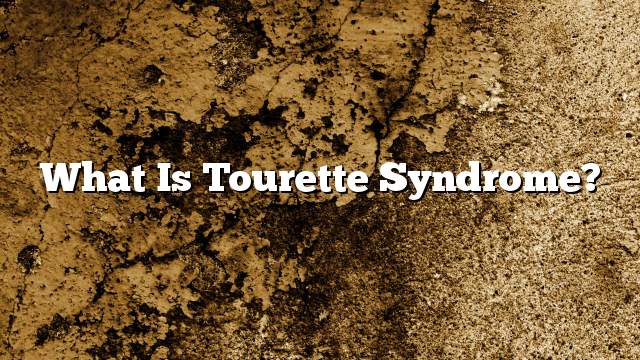Tourette syndrome
Tourette syndrome Tourettes Syndrome Known as a neurodegenerative disorder that occurs in children at an early age for genetic reasons, the person who is infected with this syndrome is a repetitive, repetitive and repetitive form of behavior called Arat. Children are often infected between the ages of 2 and 8 and begin to disappear after reaching The child is under the age of 12 years of age, but in some rare cases, the tics may continue beyond this age.
The severity of the tics varies from one person to another; they may be mild and occur at intervals in some, while they are acute, and occur at close intervals in others; which may affect the relationship of the child around him, especially family and friends, and requires treatment These tics do not affect the child’s intelligence or scientific achievement, and his condition will improve if the people surrounding him provide the appropriate environment to cope with his illness.
The label of Tourette syndrome
This syndrome was named after the French neurologist Georges Gilles de la Torit in 1884.
Tourette Syndrome Symptoms
- Arat Kinetic: Involuntary movements of the eye, shaking of the shoulders, bending of the fingers, jumping, or shaking of the neck.
- Sound Tones: The child’s cry, or the sound of a cough, or cough, and may repeat some words and phrases, or verbal abuse.
- Note: These cysts may develop over time and may occur during sleep. The condition may worsen in adolescence, but it disappears at puberty, and the condition can worsen if the patient has a situation that has had an impact on his or her psychology. Anxious, upset, or if he has a health problem.
Causes of Tourette Syndrome
The exact cause of this syndrome is not yet determined, but the following are the most important factors that are likely to be the cause of the disease:
- This syndrome occurs as a result of genetic factors, but it is not yet known what type of genes or combinations leading to the disease, but it can be said that the likelihood of the incidence of this syndrome in the case of previous cases recorded in the family record disease.
- The child may have this syndrome as a result of eating large amounts of alcohol, cigarettes, coffee, or severe psychological stress during pregnancy, or experiencing severe vomiting or nausea during the first months of pregnancy.
- The child is exposed to a lack of oxygen or blood supply during the delivery process.
- If any brain tumor is found.
Treatment of Tourette Syndrome
Most children with this syndrome do not require medication, but the role and responsibility of the person surrounding the affected child is to encourage and motivate them to adapt to the tics that they are experiencing, by creating and creating a supportive environment for them to accept and understand their nudity, whether in the school environment, It is important to note that the teachers of the injured child in the school and the parents must be aware that he can not control his tummy, and therefore he should be punished. This should not increase his anxiety and therefore increase his tics. E, the specialist doctor is alone determined.
